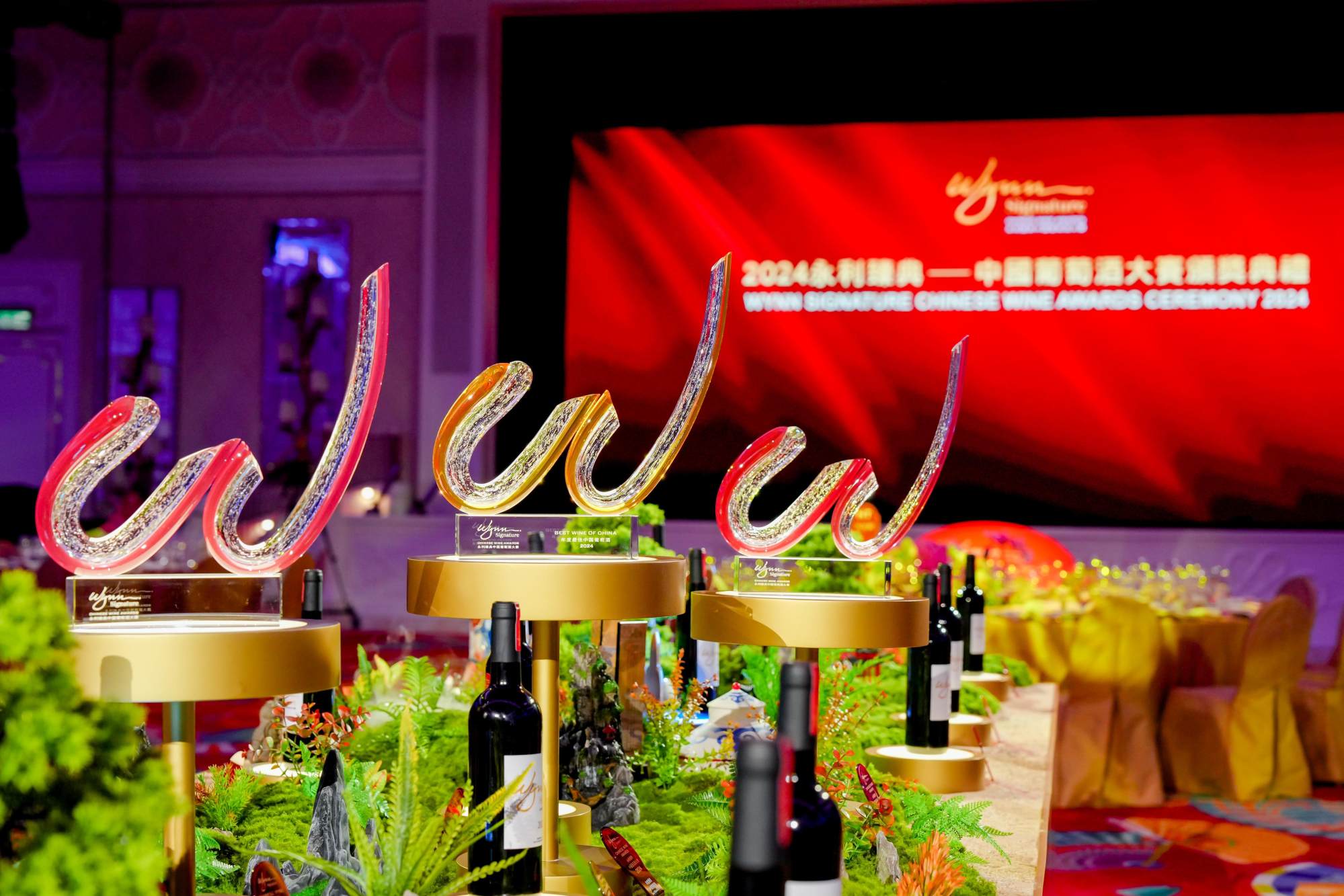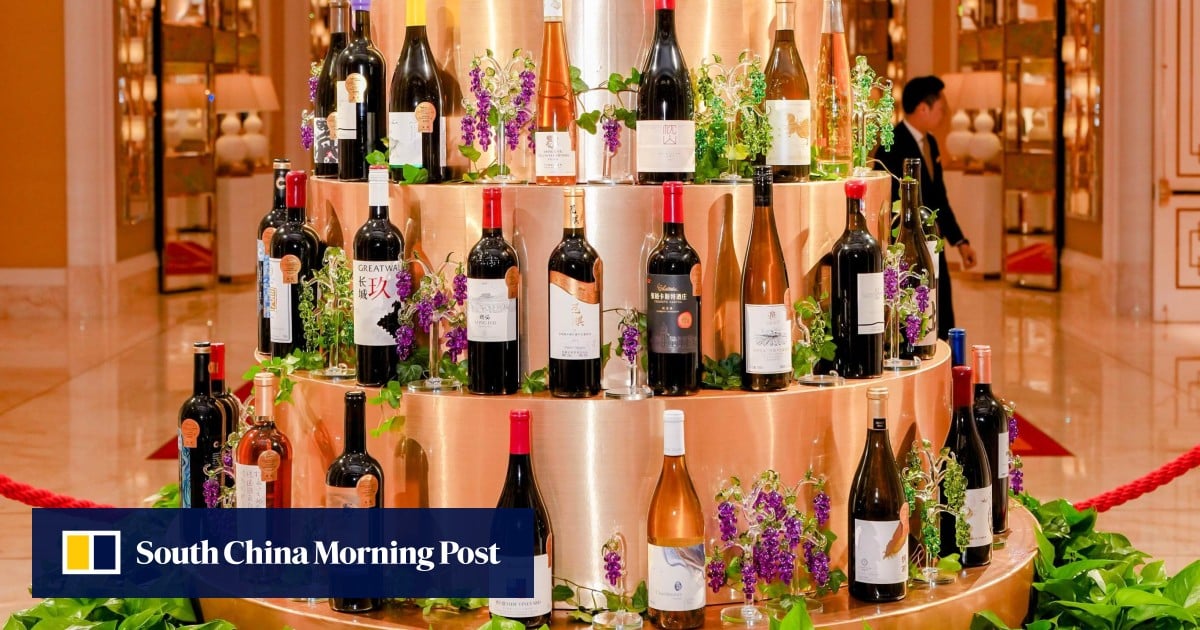When one thinks of wine, countries such as France, Italy, Spain, Australia, Chile and Argentina are likely to come to mind before China.
However, as the third largest country in the world by land mass, many parts of China are suitable for growing grapes and making wine. To give some perspective, Xinjiang, the region with the largest grape production in China, is three times the size of France.
Today, there are 12 major wine regions in China, including Shandong, Beijing, Yantai, Zhangjiakou, Yibin, Tonghua, Taiyuan, Xinjiang and Ningxia, with a total of over 200 wineries.
China-produced wine has developed so much that Macau-based hotel group Wynn recently held its first Wynn Signature Chinese Wine Awards.
‘I was taught by a counterfeiter’: how an expert wine fraud detector works
‘I was taught by a counterfeiter’: how an expert wine fraud detector works
The awards ceremony, held on April 13, was attended by 500 international wine enthusiasts, winemakers, industry experts and media, and showcased the finest wines China has to offer.
The judging process saw a panel of 27 international wine judges, including seven masters of wine and three master sommeliers, conduct blind tastings of more than 700 submissions from nearly 200 wineries.
“Chinese wines are still a tiny industry in the food and beverage universe, but if you just look at it now compared to 10 years ago, it’s a completely different story,” says Gus Zhu, a master of wine who took part in the three-day judging.
“So I’m optimistic that it will always grow, and it will become more and more interesting and steadily become a sustainable business.”
Zhu explains how several Chinese regions have switched their attention to the wine industry.
“Take Ningxia for example: its biggest agricultural product used to be goji berries but because fewer people of the younger generation believed in traditional Chinese medicine any more, the demand for goji berries was on the decline.
“So the government brought in consultants and asked universities, in search of new agricultural products for the province. So they decided that they can grow grapes and turn them into valuable alcoholic products.”
Ningxia has the first and only provincial-level development bureau for wine in China, and the industry occupies the most important position in the economic development of the region.
I recently tried an excellent pinot noir [from Ningxia] that went well with Sichuan food. It was quite a surprise
Just Wong, executive beverage director of Chef Tam’s Seasons at Wynn Palace in Macau, is stunned by the quality of Ningxia wines.
“The region was the first to start producing grapes [in China] and has received the most support from the government. They operate on a different level there. I’ve been to many vineyards in my career but the technology used at Xige Estate in Ningxia blew me away,” Wong says.
“This winery was built very quickly and has all the necessary hardware, with a formal tasting room, hotel rooms and facilities for a master class. They have a monitoring room that feeds live data about the moisture of the soil, the wind speed and cask information. The winemaker showed me that all this data was available in an app on his phone.”
However, harvesting an agricultural product that is not native to a region has its drawbacks.
“The main challenge is scaling up because of the climate,” Zhu says. “There is a monsoon season in Shandong, so some years if you have a lot of rainfall during the ripening season, you have a lot of disease pressure and the quality will suffer.
“In other places, like Ningxia, you need to bury vines in wintertime to survive the harsh winter temperatures, but some of the vines could still die. That is why we’re focusing on quality wines but on a smaller scale.”

The awards crowned Fei Tswei Marselan Reserve 2021 as China’s best wine. It also earned the titles of best red wine, best wine made with the marselan grape, and best wine of Ningxia.
The Xige Estate N28 Chardonnay 2021 was named the best white wine and best value wine, while the Domaine Franco-Chinois Petit Manseng 2018 claimed the titles of best sweet wine, best wine made with the petit manseng grape, and best of North China.
To celebrate the inaugural awards, Wynn will host the Wynn Signature Chinese Wine Month in May. Wynn Macau and Wynn Palace guests can sample the award-winning wines, either as accompaniments to specially curated tasting menus at the resort’s dining venues or in tasting flights at its various bars.
“I think it’s interesting that while Italian restaurants will promote Italian wines, Portuguese restaurants will promote Portuguese wines and so on, Chinese food is always paired with international wines,” Wong says. “By the same logic, Chinese wines should also be paired with Chinese cuisines.
“The problem is accessibility. If I opened a Chinese restaurant in the UK or Australia, it would be very difficult to access Chinese wines. This is a void in the market that needs to be filled.”
Wong adds that the Ningxia region has matured to the point where winemakers are experimenting with different grapes.
China-Australia wine trade to resume as Beijing nixes tariffs after 3 years
China-Australia wine trade to resume as Beijing nixes tariffs after 3 years
“I recently tried an excellent pinot noir that went well with Sichuan food. It was quite a surprise,” he says, noting the challenge of pairing spicy cuisine with wines.
“I really hope that with events like the Wynn Signature Chinese Wine Awards, we can bring the advances Chinese wines have made to the forefront and that we’ll see more Chinese wines around the world.”

